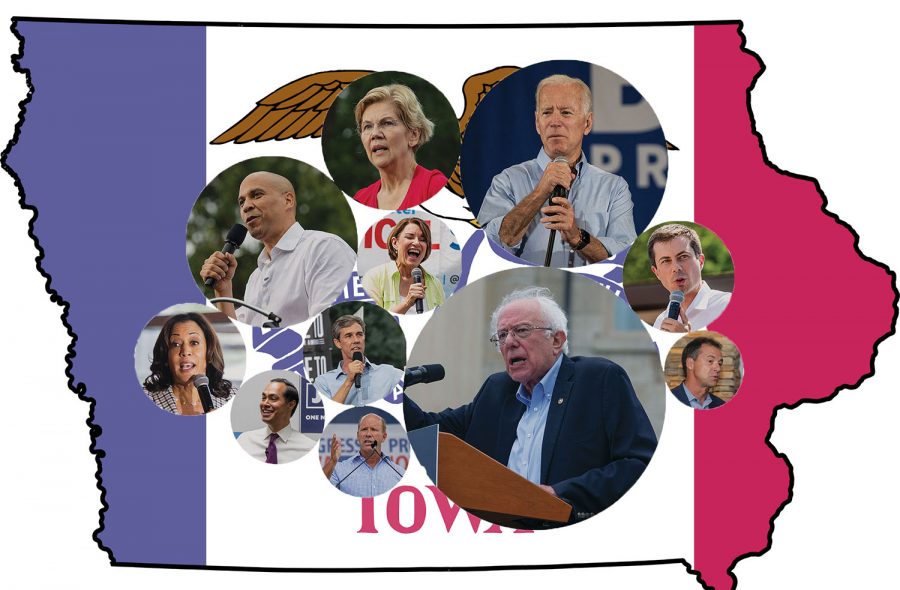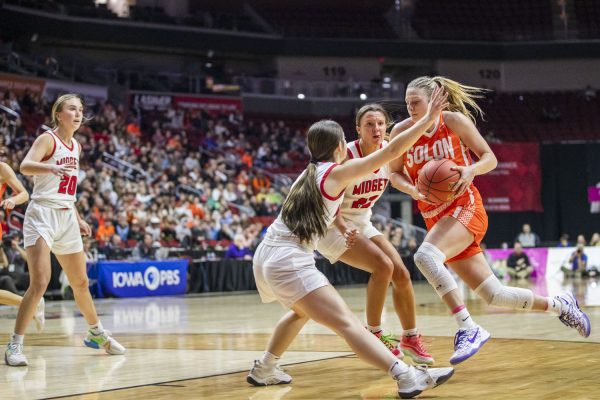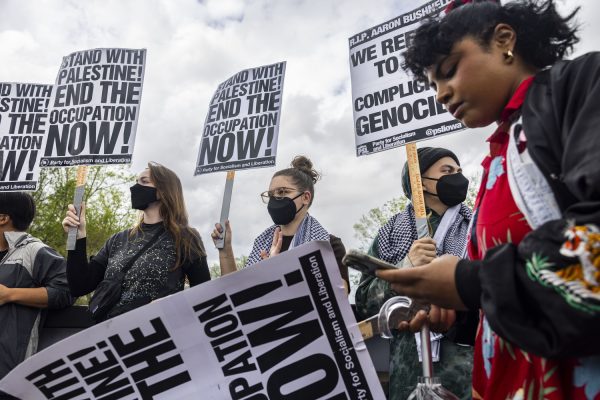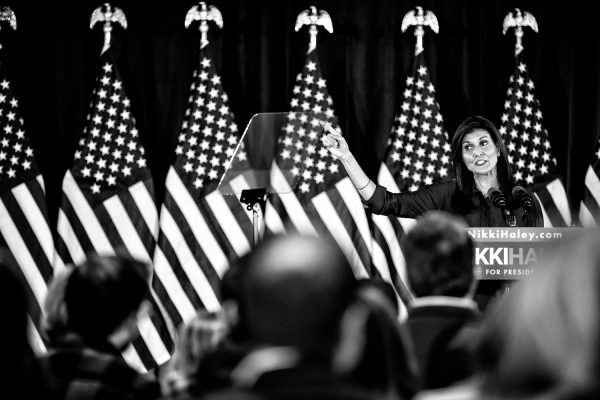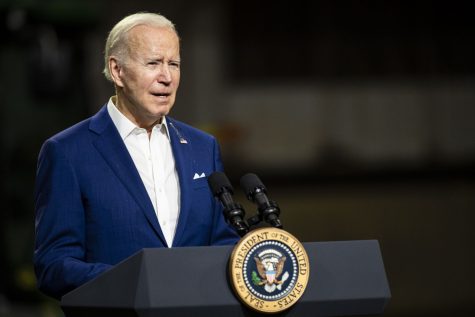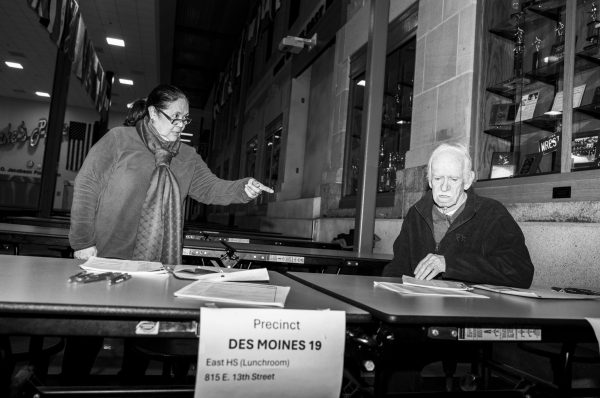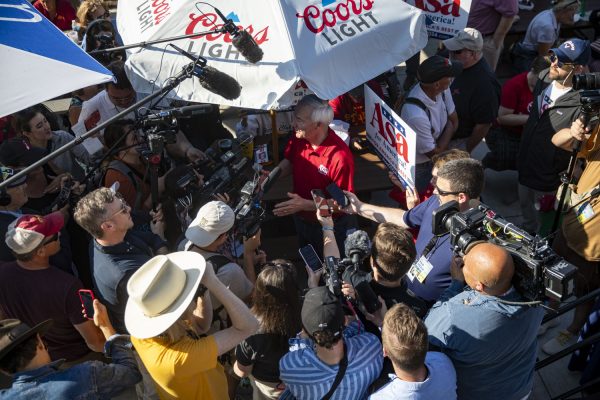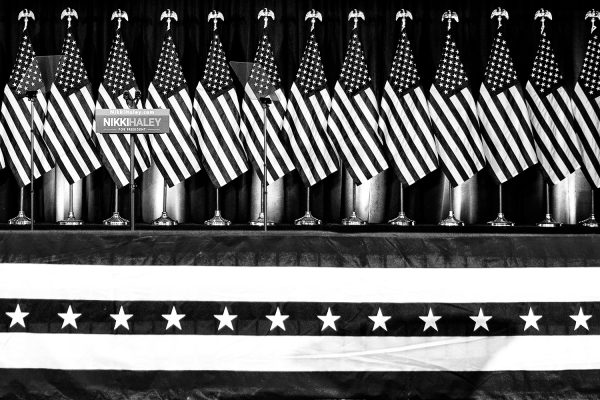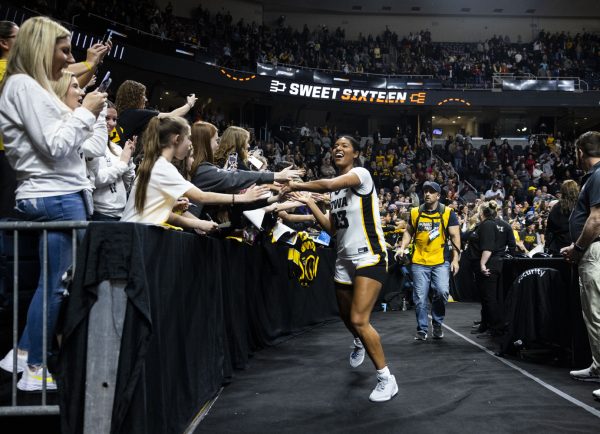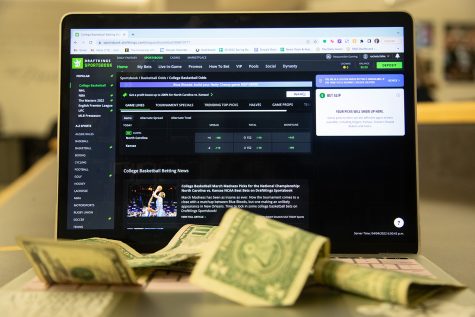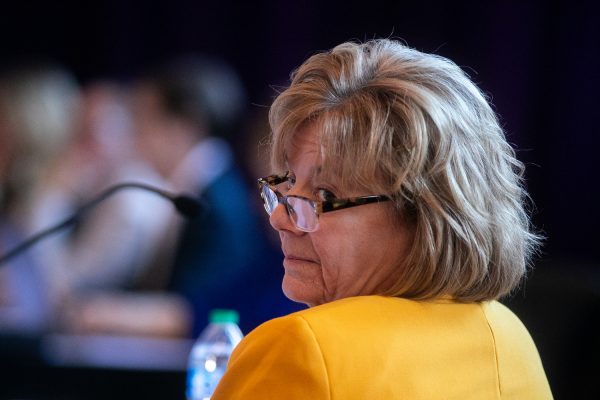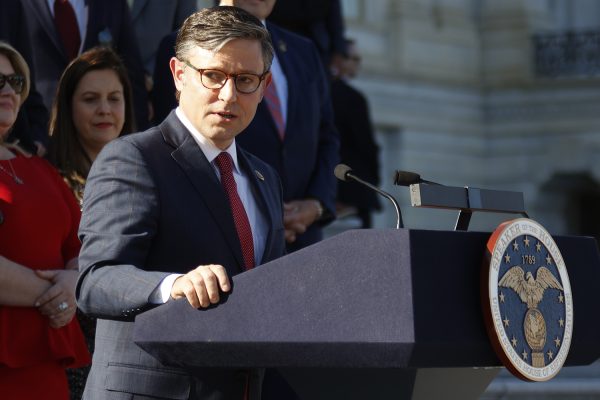A look at presidential candidate endorsements ahead of the Iowa caucuses
Presidential candidates are announcing new endorsements all the time. The numbers, effects, and strategy behind them are important pieces of the fight for support on caucus night.
Editor’s note: U.S. Sen. Kamala Harris’ circle is smaller than representative of the campaign’s endorsements. She announced Sept. 12 a list of 100 “Blue Wave Women” who endorsed Harris for president. These Iowa women became active in politics after the 2016 election, and many will be serving as campaign volunteers and precinct chairs on Feb. 3. The article has been updated to include the information. The DI regrets this error.
With nearly 20 Democrats in the race for president, candidates are seeking endorsements from influential people around the state.
Presidential candidates have picked up endorsements from prominent politicians and party members in the state, from Iowa lawmakers, city councilors, activists, and former and current party leaders.
An endorsement is a public declaration of support, a promise to advocate for a candidate and caucus for that person in February. They can help a candidate gain name recognition and add legitimacy to their candidacy — but how much benefit do these endorsements offer to the campaigns?
Do endorsements matter?
Of Iowa’s 65 current Democratic state senators and representatives, 22 have endorsed presidential candidates.
Those high-profile endorsements do not always translate to direct support. Sen. Cory Booker, D-N.J., holds the most endorsements from current Iowa legislators, with six state representatives putting their name behind him. The support has not necessarily paid off in popularity, however, as a Des Moines Register poll of 602 likely caucusgoers on Sept. 21 had Booker at only 3 percent, tied for sixth place with Sen. Amy Klobuchar, D-Minn.
Still, endorsements have their benefits, Tri-County Democrats of Iowa Chair Kurt Meyer said. He said legislators and other state officials can increase a candidate’s popularity.
“If you’re, for example, in the state Legislature … you have a cadre of people who have already indicated that they are supportive of you,” Meyer said. “And if you’re willing to open your connections to really further a campaign, that can be a pretty meaningful thing.”
RELATED: On Labor Day, 2020 Democrats pledge support for unions
An endorsement can carry weight just by the name attached to it, but what separates a good endorsement from a great one, Meyer said, is how much the endorser does for the candidate.
“If I say… I am going to have three events, I’m going to go out and knock doors, I’m going to travel the state, then it can be pretty important,” Meyer said. “… Without that second part, then the first part becomes sort of an exercise rather than propulsion.”
Iowa Sen. Joe Bolkcom, D-Iowa City, announced his endorsement for Sen. Elizabeth Warren, D-Mass. on Sept. 13. He accompanied Warren at Hamburg Inn No. 2 on a campaign stop Sept. 20, where he chatted with her and other Iowa City area residents about how to combat climate change. Bolkcom said it’s important to him to actively campaign on Warren’s behalf, rather than just tying his name to her.
“I plan to try and recruit people to her cause,” Bolkcom said. “I plan to spend time talking to my colleagues, talking to my constituents about why she’s the one to lead the country in 2021.”
Bolkcom said he wanted to put out his endorsement fairly early to push other lawmakers in Warren’s direction and begin working to advance her cause before the caucus.
RELATED: Johnson County political heavyweights lead endorsement dominoes
With so many candidates in the Democratic field, he said he hopes his endorsement will help people come to a decision of who to support.
“I do think the endorsements are helpful to signal support for candidates, and especially in this field, where we have so many strong candidates,” Bolkcom said. “For people that are between one or two of these candidates [I hope] that the endorsement might put people in a direction toward Warren.”
Endorsements come in all shapes and sizes
Candidates also aim to get a diverse array of endorsements, said Penny Rosfjord, the 4th District chair for the Iowa Democratic Party. While the backing of a legislator is valuable, she said, people often like to see local activists or people that they know endorse candidates.
“Some people may say they look for those key endorsements from statewide officeholders,” she said. “But then other people may look at it and say … ‘I want to see an activist endorse a candidate.’ I think that is really in the eye of the beholder.”
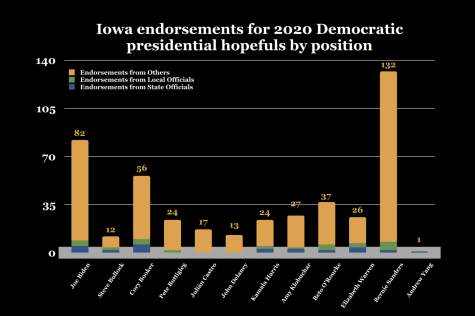
Sen. Bernie Sanders, I-Vt., delivered a list on Sept. 25 of more than 100 endorsements, with at least one from each of Iowa’s 99 counties. Nearly all of the endorsers were local activists. Iowa Bernie 2020 State Director Misty Rebik said in a news release that the campaign is banking on the power of the “statewide network of grassroots organizers” to propel Sanders to a win on caucus night.
Fellow senator, Kamala Harris of California also rolled out a list of 100 endorsers, called “Blue Wave Women” who became engaged in politics after the 2016 election. According to a release Sept. 12 ahead of the September presidential debates, these women would be volunteering for the Harris campaign by canvassing, phone banking, and many would serve as precinct chairs on caucus night.
Endorsements can also be a way to cater to specific groups of caucusgoers. Former Vice President Joe Biden released a list Sept. 26 of more than 50 endorsements from Iowa educators, with a news release touting his record on education.
Timing is key
Candidates are strategic about when to announce endorsements, Tri-County Democrats Chair Meyer said. They may plan endorsement announcements to coincide with important polls or announce one endorsement after another in an attempt to give the image that the candidate is gaining momentum.
“If you have six legislators that are going to endorse you… you might want to time that in such a way that it crescendos to get this feeling that, ‘Man alive, candidate X is really on the ascent here,’” he said.
An early endorsement can be a good way to get a candidate introduced in the state, Rosfjord said, with Iowa being especially vital as the first-in-the-nation caucus state. Booker was the first to gain public support from lawmakers in Iowa, picking up an endorsement from Rep. Amy Nielsen, D-North Liberty, in February and from Rep. Jennifer Konfrst, D-Windsor Heights, in April.
Now, Rosfjord added, candidates are likely trying to announce endorsements a little at a time to generate the feeling of momentum and key into several important communities. The strategy varies among campaigns, however, with Biden and Sanders opting to announce massive batches of endorsements at once.
Party leaders stay neutral
When it comes to leaders within the party, the endorsement process is more complicated. Most party leaders at all levels are allowed to endorse candidates, but there has been a push from the state party for leaders to remain neutral. Iowa Democratic Party Chair Troy Price has said he does not plan to endorse during the caucus process.
Dubuque County Democrats Chair Steve Drahazol said he thinks party leaders should stay neutral in the presidential race. He said the recent push for neutrality came after controversy in the 2016 caucuses. Discrepancies between caucus results and delegate appropriation were reported at several precincts, and Sanders supporters accused the party of being biased toward Hillary Clinton.
“I cannot say that I disagree with that aspect of what some of the Bernie Sanders folks said,” Drahazol said. “And that left a sour taste in people’s mouths.”
Drahazol said endorsements from county chairs specifically can also alienate people in the county party and discourage candidates from visiting those counties. County chairs have an involved role in planning for and executing caucuses within the county, and Drahazol said an endorsement could cause a conflict of interest in those proceedings.
County chairs from Mills, Van Buren, and Wayne Counties announced endorsements for former Rep. John Delaney, and the Howard County Democrats chair endorsed South Bend, Indiana Mayor Pete Buttigieg.
“I think that as much as you try to be fair to all the other candidates, it can really impact what you do, or at least how people perceive what you do,” Drahazol said. “You kind of have to remove yourself from a lot of the caucus proceedings, things like that, and you basically abdicate your role as a party leader.”
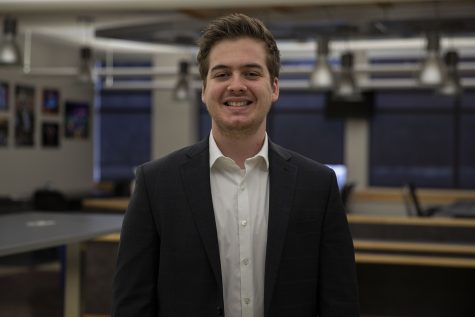
(he/him/his)
Caleb McCullough is the Executive Editor at The Daily Iowan. Caleb is a senior studying journalism and political science, with a minor in...



